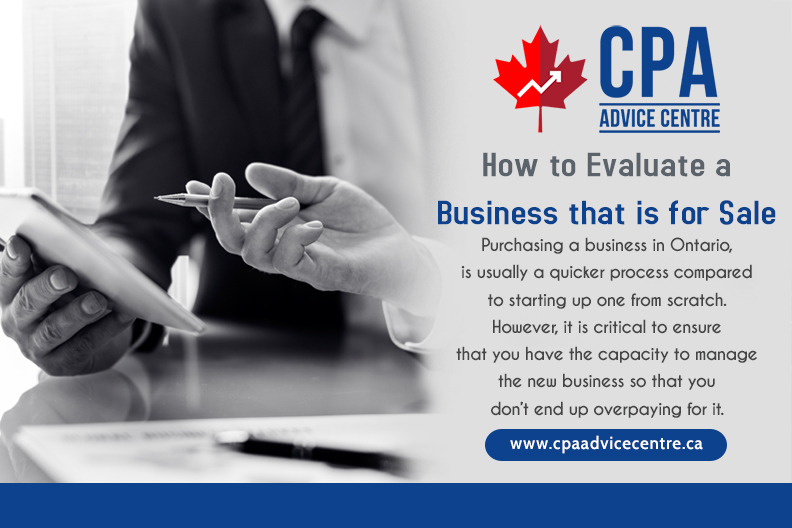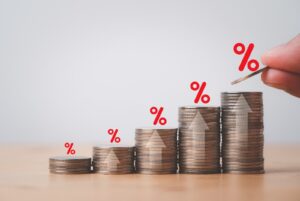Purchasing a business in Ontario, is usually a quicker process compared to starting up one from scratch. However, it is critical to ensure that you have the capacity to manage the new business so that you don’t end up overpaying for it. Before embarking on the journey, there is much that you must learn. You need to understand the purchasing process and decide on the type of business to invest in, locating the opportunity, negotiating the price, closing the deal, and ensuring that all legal requirements are fulfilled. For this reason, this guide gives you the best skills you need to evaluate a business for sale before signing any checks.

FINDING A BUSINESS: INDEPENDENT OR FRANCHISING
When purchasing a business, you have the option of considering either an existing independent business or franchising. Either way, every type of business has its own strengths and weaknesses. Pros of buying independent business: • Since you will be owning 100% of the business, you won’t have to divide the profits made with anyone. • An independent business gives you more control over operating, setting your own operational rules, and making key design decisions. • Purchasing an independent enterprise that has the potential to do well can reap you a lot of rewards after hard labor. Cons of buying an independent business: • A major challenge of running an independent business is the overwhelming responsibility. • The success of such a business is solely on you. • When tasked with establishing a brand or revamping a brand with a poor reputation, an independent business holds the highest risk. Pros of buying a franchise: •Franchises already have positive track records. Since the business is proven, there will be less risk involved. • Since a franchisee operates under a parent company, the business owners do not need to spend more time in minor details such as advertising or coming up with company policies. • Franchise already has an established customer base; you won’t invest in creating brand awareness. Cons of buying a franchise: • You will have less freedom in controlling the business operations. • A part of the profits generated must be shared with the parent organization.THE BASIC QUESTION: HOW MUCH AM I WILLING TO SPEND?
The valuation process will help you address the fundamental question, “How much do I want to spend on this business to be able to get $X every year?” In order to answer this question, you will have to review the historical financial flow, including reviewing the Income and expense statement of the company; arriving at the net profit before interest, tax, depreciation and amortization; considering the financial impact of potential market changes such as non-recurring expenses or a windfall profit. You may also need to make adjustments to reflect “normal” market rates, such as including the standard wage rates of a business in the Greater Toronto Area used in the market. After determining your “normalized” estimated earnings using the trends and historical data, choose a multiple that exist in the market. Compare the costs and benefits of the business and the return on investment to other alternative investment options. Using this information, you will be able to determine whether the purchase is worth it.WHY YOU NEED TO EVALUATE THE PERFORMANCE OF A BUSINESS?
As you review the performance of a business in Ontario, you need to assess information about past performance to accurately determine the overall value. The economic valuation will tell you whether you are making the right decision in considering a used business. As you review the financial details of the business, you will prepare financial statements. The three types of statements commonly prepare are:- A Notice to Reader Statement: This is the cheapest and quickest financial statement to prepare. The evaluator will have to record only basic financial details of the company using current bookkeeping records. The information collected is filed in a financial statement, Notice to Reader, which conforms to the accounting standards in Ontario used for valuation.
- Review Engagement Report: This financial statement is more reliable and thorough compared to Notice to Reader. Your financial evaluator in Ontario, will prepare the report by checking the budget and profits of the company as well as market trends. The final report informs the buyer whether there is something unusual about the business.
- Audited Financials: This is the most expensive and comprehensive statement for a business in the Greater Toronto Area used for evaluation. Your accountant will be able to conduct an in-depth analysis of the company, thus providing a complete understanding of the management system and operation processes.
WHAT TO/ LOOK FOR WHEN PURCHASING A BUSINESS IN TORONTO, ONTARIO?
Business evaluation ensures that the type of business you plan to invest in is profitable. To determine the profitability, you must review the financial plans and statements. Here are the factors to consider finding the right business on sale.- Profitability—When purchasing a business, you need to look through the financial statements to understand the company’s EBITDA (Earnings before interest, taxes, depreciation, and amortization), the profit for evaluating an enterprise’s financial health. You will need to hire a professional Accountant in Ontario to help you with the financial evaluation. Experienced accountants always have the knowledge and skills to analyze the profitability of a business.
- The price— When buying a business, you also need to consider the price. How will you know that the price set for the business is not exaggerated? To avoid being exploited, you need to calculate the market value and then make a comparison with the seller’s price. The value of a business is usually calculated between two to five times EBITDA, considering the following adjustments: • Bonuses offered to the business manager • Non-recurring revenue sources • Non-recurring expenses • Personal expenses
- Growth— When purchasing a business, you must look at whether there is potential for growth in the net income or revenue. You want to invest in a business that has the potential to grow in sales and net income. It is very difficult and subjective to assess the growth potential of any business. However, some of the factors to consider for potential growth include possible additional revenue sources, recognized brand name, ease of expansion, and existence in a growth industry like technology.
- Location— The location of a business to buy is very important during evaluation. When investing in a retail store, for instance, the area should have a lot of traffic and parking spaces. Similarly, when investing in an office building, consider the type of investment you are making. An office space that is ready for an occupation will be worth investing in compared to a business that still requires some work.

















